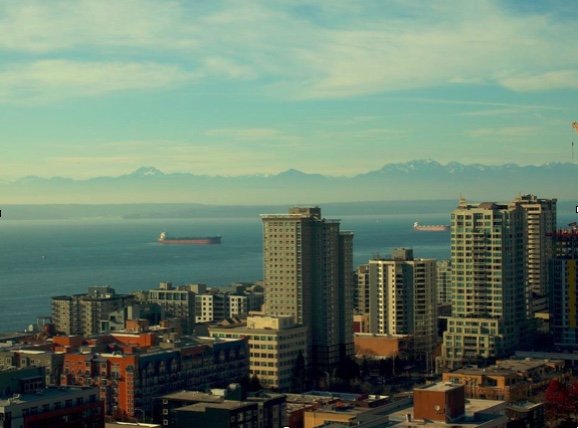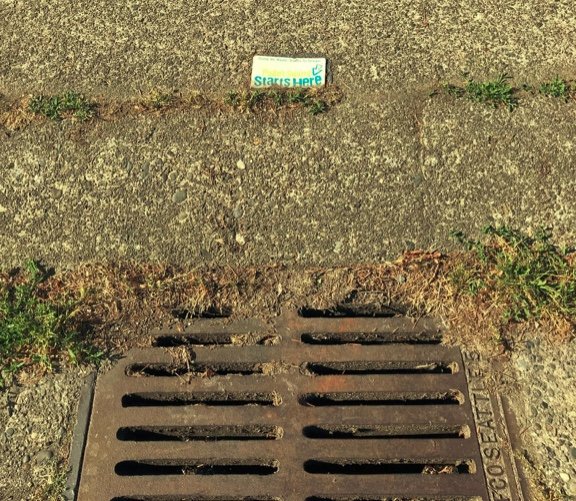David's Desk is my opportunity to share thoughts and tools for the spiritual journey. These letters are my personal insights and opinions and do not necessarily reflect the sentiments or thoughts of any other person in Lorian or of Lorian as a whole. If you wish to share this letter with others, please feel free to do so; however, the material is ©2023 by David Spangler. If you no longer wish to receive these letters, please let us know at info@Lorian.org.
Incarnational Spirituality
Those of you who are familiar with my teaching and writing know that I work in collaboration with non-physical individuals living in the subtle and spiritual realms. I call them my “subtle colleagues.” In the late Nineties, just before the turn of the century, one of them said to me, “The challenge with humanity is not that you are too incarnated. It’s that you’re not incarnated enough.”
I knew that he didn’t mean that we needed to become more physical. But what exactly did he mean? It seemed important to me to find out. (It’s not unusual, by the way, for a subtle being to drop a comment like this into my consciousness and then leave it up to me to figure out what it means!).
To start out with, I had three clues to work with. The first was a memory. When I was seven, I had an out-of-body journey in which I re-experienced the process of my own incarnation, moving from the spiritual realms into embodiment. What was most clear about that experience was the joy that I felt at the opportunity to be an incarnate human being and the flow of love for the world that made it possible.
The second clue came when I was seventeen. It was during the summer between graduating from high school and entering college. I had a clear vision of my future (not the one I had been planning for!) in which I participated in the unfoldment of a spirituality grounded in love and appreciation for the incarnate state.
The third clue was something one of my first subtle colleagues, an individual I called “John,” said to me in 1965 when we first began working together. He said, “You don’t incarnate into a body the way a driver steps into an automobile.” (Which, by the way, was a common image of incarnation in those days, and perhaps still is.) “You incarnate into a system of relationships and connections with the world. The body is simply one element of that system.”
This latter idea was also my introduction to systems thinking, a way of viewing the integral and interconnected nature of the world. In working with the subtle realms, one quickly realizes just how interconnected and “entangled” everything is, however much it seems here in the physical dimension that we are all separated and apart from each other and the world around us. It also becomes apparent that love is the primary “entangling” force, just as it is the force that drew me, and countless other souls, into incarnation.
A holistic, ecological, systems view of life and the world is not new in human history but it is relatively new and unfamiliar to our Western society which has adopted a more atomistic perspective, breaking everything down into smaller and smaller separated parts. In life, however, the whole is always greater than the sum of its parts, so a reductive, atomistic approach will never give us an accurate picture, either of who we are or of the world around us.
With this perspective and the three clues to start with, I began to weave a deeper understanding of the nature and potential of incarnation. I called this exploration and the insights that came from it “Incarnational Spirituality.” Over the past quarter-century, this exploration has been developed, expanded, deepened, and enriched by the contributions of many colleagues within and outside of Lorian, including those in the subtle realms. It has been a truly collaborative endeavor.
If I were to give a one-sentence definition of Incarnational Spirituality (something I’m often asked to do), I would say that it is an exploration of the spiritual resources and potentials we have as incarnated individuals. It offers a toolkit to bring those resources into play in ways that can benefit our world. Incarnational Spirituality affirms that being in a physical body in a physical world is no impediment or obstacle to being a spiritual presence or to being a source of blessing but in fact is a source of strength and power.
Of course, a one-sentence (or even a one-paragraph) description doesn’t cover all that Incarnational Spirituality (or IS) can offer. It’s why Lorian offers different classes and books exploring it all!
One of the most important things it offers is empowerment. I have worked with spirit-seeking individuals, groups, and communities for sixty years and a bit more. A common idea I have encountered over and over again is that incarnation is a form of “exile” from our “true home.” It is a loss, a diminishment of who we really are. Wherever individuals acquire such an idea (and there are many possible sources), it is ultimately disempowering and limiting. It keeps us from recognizing how much more we are each capable of being and expressing. It deprives us and the world around us of gifts and blessings we otherwise could offer–gifts of love, compassion, fellowship, understanding, healing, and vision that are very much needed.
Based on many people’s experiences throughout human history, the world has both a physical and a non-physical or “subtle energy” side. I like to call the latter Earth’s second ecology. A core insight of Incarnational Spirituality is that we incarnate into both, for both are part of the “incarnational system” that “John” spoke of nearly sixty years ago. This means we are beings of subtle energy as well as of physical matter. The gifts we bring into incarnation, the potentials we can unfold, operate in this subtle domain as well as in the physical world. This is why, for example, we can be effective subtle activists as well as physical ones. The terrain in which we can operate to bring blessings into the world is thus vastly expanded. It is a vision of incarnational wholeness.
One doesn’t have to study Incarnational Spirituality to awaken to and express these gifts. There are other spiritual and psychological teachings and approaches appearing in our time that work toward the same needed and important goal–a reclamation of our individual and collective human wholeness. Each of us needs to discover the way of awakening that suits our individuality. One thing IS offers, perhaps uniquely, is a toolkit to express both the material and the subtle sides of our incarnational wholeness.
Our world is suffering from fragmentation and the conflicts that this promotes. This is why my subtle colleague said that we weren’t incarnated enough. We’re not mindful and deliberate enough with our interconnectedness.
To enable wholeness is the need of our age. We are called to do so in service to our world. How we hear and respond to that call is up to us. What is important is realizing that we can respond. We have what it takes in the wholeness of who we are to remake our world. Incarnation brings us to where we are needed and with the tools we need in order to do so. The rest is up to us.
AN EXPERIMENT
One of the advantages of David’s Desk being digital is that I can do things I couldn’t if it were printed. My Lorian colleague and friend, James Tousignant, and I do podcasts together. He thought it might be interesting to you, my Reader, if he and I were to have a discussion around the theme of that month’s essay and then add the audio at the end. That way, you could both read my thoughts for that month and also listen to me talk about them with James. So, without further ado, here is this month’s conversation. I hope you enjoy it and the added dimension it brings to David’s Desk







